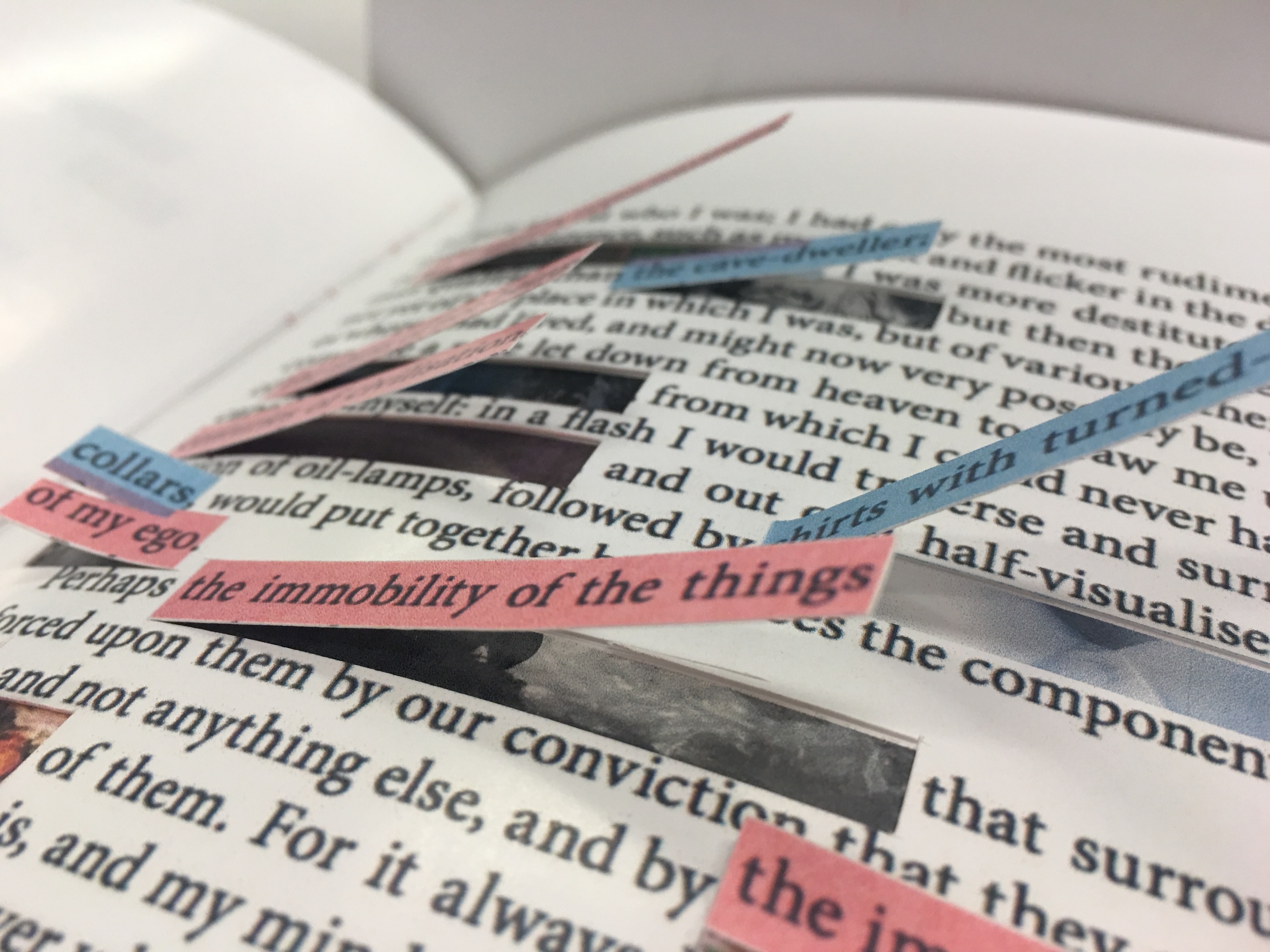Human Imagination vs Machine Learning
How the computer can interpret poetic words which only human could imagine?
What can be a critical role of our sensibility in the age of Artificial Intelligence?
I proposed those critical questions and show how we interpret imagery words in literature.
Unlike machine vision and AI, we have the ability to imagine with unlimited possibilities when it comes to interpret stories.
Gathering words data from Marcel Proust's "In Search of Lost Time"
I redacted all the sensory words that could be interpreted in subjectivity and objective verbs that the computer might exactly understand and interpret. I chose Marcel Proust's masterpiece "In Search of Lost Time" to examine this process, which is well known as one of the most influential works that has thousands of poetic imagery in world literature. After redacting all the words in one chapter of "Swan's Way" I classified those words as abstract imageries and words that has clear images by considering whether they are readable by the computer's machine vision driven by Big Data.
Sensory and creative exploration of language in literature
The beautiful stories that lie in literary fiction are awaiting us. When we watch a movie or fiction, our brains come up with various imagination, which amplifies our creativity. There is room that the machine cannot challenge us. I want to claim our imagination is superior to machine vision.
Google search process driven by the flood of Big Data
In the process of searching for all the words in Google, I found that it is easy to find objective words in Google directly while the sensory words are hard to find and my subjective interpretation is highly in charge of choosing images based on my experience and memory related to those words.
For the final output, I competed a web data visualization driven by those words analysis and a zine which consists of a full of redacted words. For the user experience, I cut out the sensory words to enable user to imagine what's the imagery first and see the verbal words. It's an attempt to maximize the visual communication and imagination that propose a new way of reading experience as well.






